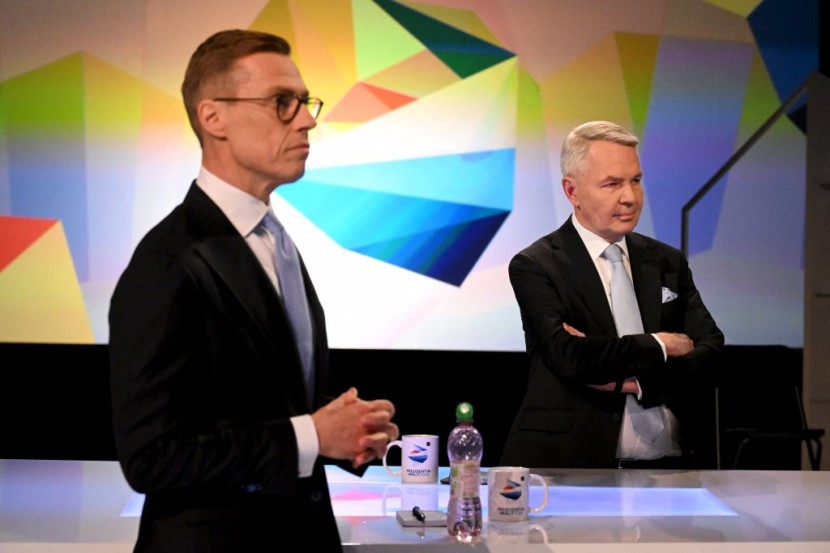Finnish voters choose between centre-right National Coalition Party candidate Alexander Stubb and liberal Green Party member Pekka Haavisto in a presidential runoff on Sunday.
In the latest polls, former prime minister Alexander Stubb leads centre-left liberal Pekka Haavisto by 6-8 percentage points after barely winning the first round on Jan. 28.First-round support for Stubb was 27.2% and Haavisto 25.8%. No one got more than 50%, hence a runoff is needed.

Regardless of the outcome of Sunday's presidential election in Finland, the newly elected foreign and security policy chief will be an ardent pro-European cosmopolitan who firmly endorses Ukraine.
According to Reuters, he will succeed retiring Sauli Niinisto, ushering the nation into a new era within NATO following its decades-long non-alignment and decision to join the Western defense alliance in response to Russia's invasion of Ukraine.
The president of Finland coordinates closely with the government, serves as the nation's representative at NATO meetings, and assumes the role of Chief Commander of the Finnish Defense Forces.
On January 28, former prime minister Alexander Stubb of the National Coalition Party won the first round of voting by a narrow margin. In the surveys, Stubb is 6-8 percentage points ahead of former foreign minister and center-left liberal Pekka Haavisto.
"Both candidates have a strong international profile and are characteristically urban," said Markku Jokisipila, the director of Finland's Centre for Parliamentary Studies. Jokisipila stated that the center-right Current polling indicates that approximately one-third of the electorate supports progressive and green political parties, while the remaining electorate is oriented toward conservatism.
As a result, Stubb is the clear frontrunner. Haavisto, who is seeking a third term as president, would become Finland's first openly homosexual leader should he secure an unexpected victory. Voters continue to consider his sexual orientation, as evidenced by recent surveys which indicate that one-third of respondents cited his partnership with a man as a reason not to support him.
Stubb, in an effort to appeal to a wider audience, has abandoned his earlier EU federalism during the campaign. However, he has remained "internationally oriented" and supports extensive NATO cooperation, according to political scientist Johanna Vuorelma of the University of Helsinki.
Although Haavisto, a member of the Green Party, stated his intention to adhere to the existing legislation in Finland that unequivocally forbids the presence of nuclear weapons on Finnish soil, Stubb proposed permitting their transportation to Finland, but not their storage. Stubb, in contrast to Haavisto, who has stated that he does not see the need, is also in favor of stationing permanent NATO forces in the country, he noted.
Finland-Russia Border Closure
The issue surrounding the boundaries of Finland's NATO involvement has garnered considerable attention since December, when the nation signed a defence cooperation agreement with the United States, granting unrestricted access to 15 facilities and areas in Finland for the American military, including the storage of military equipment and ammunition.
Russia, with which Finland shares a 1,340-kilometer (830-mile) border, opposed the defense pact. Moscow characterized it as "obviously a threat to us" and vowed to "retaliate against the accumulation of NATO military capabilities along our border."
Per AP News, Vuorelma stated that supporters of nationalist Finns Party candidate Jussi Halla-aho, who was vanquished in the first round with 19% of the vote, might feel estranged by the international orientation of the two remaining candidates.








